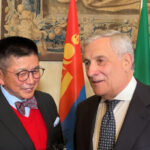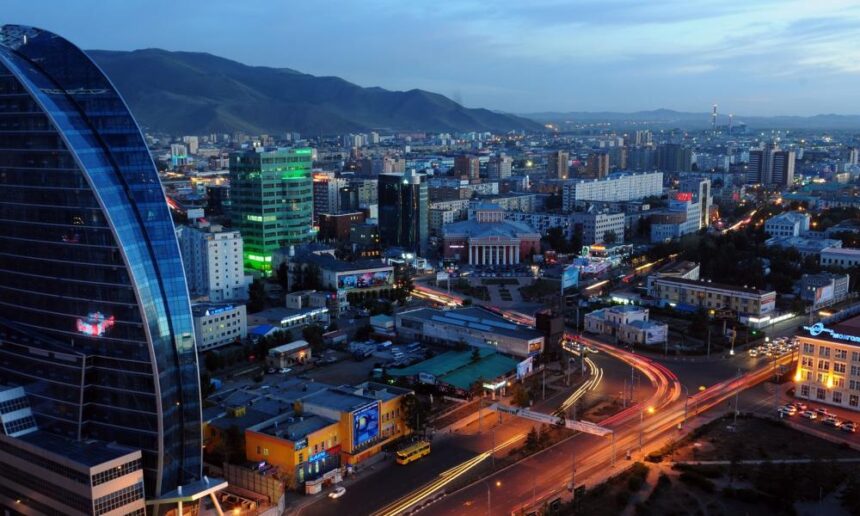This is the last of the three articles I have written using the notes I took during my interview with His Holiness the 14th Dalai Lama in Delhi, about three weeks ago. The first article talked about the great spiritual transition taking place in Mongolia’s society, whereas the second one was about happiness and the values of life. This time, it is a summary of the Dalai Lama’s teachings on how one’s destiny depends on his character.
Some nations have a saying that goes, “Watch your thoughts, for they become words. Watch your words, for they become actions. Watch your actions, for they become habits. Watch your habits, for they become character. Watch your character, for it becomes your destiny.” It seems that the Dalai Lama’s thoughts are reflected in this “thought-word-action-habit-character-destiny” logical sequence.
THINK CAREFULLY ABOUT WHAT YOU ARE PRAYING FOR
On Dorje Shugden, the Dalai Lama said, “Among the spirits, Shugden is a very controversial one. The concept, which started during the 5th Dalai Lama’s era, has been around for the last 400 years. According to the 5th Dalai Lama, a Lama named Tyabu Danzan became Shugden, an evil spirit, after making the wrong prayers. The 5th Dalai Lama said that the spirit is very harmful.”
You have said that it was caused by the wrong prayers. Does this mean that, if one says the wrong prayers, it can bring harm to the person praying?
Yes. For example, if you have accomplished good deeds, and pray that you are now to become a holy and kind soul, it is wrong. Such prayers are very harmful. At one time, I myself worshipped that spirit, due to my ignorance. By doing so, I, the 14th Dalai Lama, disgraced the previous Dalai Lamas. The 5th Dalai Lama warned specifically about such prayers and this spirit being very harmful. The 13th Dalai Lama also put a lot of restrictions on such prayers. My junior tutor fought this spirit very much. But he treated it as a servant and as a friend, like a protector. So I also followed him. But my senior tutor was quite suspicious of this spirit. He always remained distant. So, from 1951 to 1970, I worshipped that spirit and then gradually developed some suspicion as well. Then I did thorough research on the history of the last 400 years and it became very clear that this is a very harmful prayer.
Another thing is, the First Dalai Lama, the 5thDalai Lama, and the 13th Dalai Lama also worshipped in a more non-sectarian way. Many well-known great spiritual teachers were also non-sectarian. There were some individual sectarian teachers as well. This also suggests the extent of the worship of this spirit today. Once you worship this spirit, you should not keep any of your own traditions. If you keep them, this will bring you harm. So this is very bad for the promotion of non-sectarian religion. There were too many sects in the past in Tibet and, sometimes, it would lead to small-scale conflict and fighting within the religion; like Shia-Sunni mini fighting. Tibetans sometimes also fought because of extreme sectarian religion, which was extremely wrong. Gelu, Nemu, Saja, and Guhju are all followers of the Nalahru tradition; they all are followers of Buddha. Therefore, this spirit is very harmful to a non-sectarian way of worship.
BE HUMBLE
In Mongolia, people try to stand out and show off their material wealth rather than being humble. Humility is not that big of a trend. But, it looks like Tibetan lamas and Indian people are very humble people. How important is modesty?
Very important. Modesty is essential for everyone. When I meet people, I try to approach them as one of the seven billion human beings dwelling on the planet earth, rather than the Dalai Lama. You see, that attitude brings us much closer. I consider people my brothers and sisters and I hope they also consider me as the same. On that level, we are no different from each other. If I emphasize that I am special and I am the Dalai Lama, then I, myself, will become more isolated
How do you manage to keep such an attitude when thousands of people are praying to you because you are the Dalai Lama? How do you see yourself as just an ordinary person?
The Dalai Lama is also a human being. So, we must always go to a fundamental level. The seven billion human beings on Earth are the same. However, there are a lot of differences at a secondary level: different races, different faiths, and being rich and poor. The three million people in Mongolia are also the same, regardless of whether they are religious or not. Buddhist, Christian, Muslim or not, rich or poor, and intelligent or humble. There are a lot of differences. Therefore, you should go to the fundamental level and look for the similarity we all share. We should remember that regardless of our race, religion, and beliefs, we are all intelligent human beings. The compassionate mind is on the level of humanity. If we go to a deeper level, a human level, then there are no boundaries and no differences among us. All seven billion human beings are all the same. So, we need everyone to have a sense of oneness and unity, which I always emphasize. I am only one of those human beings. This thought has helped me relate to others and become closer to them. If I put too much emphasis on being a Dalai Lama who should only remain on his holy throne, then I become a lonely person. [laughs]
KEEP LEARNING THROUGHOUT YOUR LIFE
Your Holiness, what is your opinion on education for all ages? I always read in your interviews that you are always concerned about education and knowledge. Education is not only for children, but also for people of all ages. Please tell us what you think about this.
I think that education means gaining deeper knowledge. In the 13th century, a Tibetan Gerhd Master said that humans learn continuously throughout their lives, until their very last day.
Does education mean enlightenment? How does one achieve enlightenment? Are education and enlightenment different?
Enlightenment can be interpreted in many ways. Of course, the better education one has, the more enlightened he is. We can say that. You can also say that scientists are more enlightened. On a spiritual level, we can say the Buddha is an enlightened person. Enlightenment is knowledge at a very deep level.
Buddhism is taught to Tibetan people in the Tibetan language. Tibetan people learn Buddhism in their own language, which is not the case in Mongolia. Ordinary people don’t understand Tibetan. Do you think that it is better for Buddhism to be taught in Mongolian to Mongolian people?
Yes, the language barrier. I think that it is better to translate the Buddhist teachings into Mongolian. For more than fifteen years, we have been working on Ganjuur Tenjuur’s more than three hundred volumes. We categorized it in three parts, upon their basis: science, philosophy, and religion. Science is common and universal. Ganjuur Tenjuur has a lot of explanations about our mind and about our body. So, we already have one textbook, which is the first part on science, with full cooperation from some scientists and some educators.
We are now working on developing a draft curriculum, which can fit in the secular education field. In America, some scientists have already been carrying out experimental projects with very good results for the last 10 years. Today, Tibetan refugee schools in India are teaching lessons about Buddhist science. As Mongolia is a Buddhist country, you could easily adopt such academic teachings. Regardless of whether the student is a believer or a non-believer, Buddhism, as a secular subject, can be taught universally. It can be taught to develop inner peace. It will also make people understand that the destruction of inner peace is not an external force, but your own destructive emotion. So in order to tackle this destructive emotion, one should have better knowledge about the nature of different kinds of emotions. Then you can deal more effectively with negative emotions. This is not something for the next life, or for Nirvana. It is simply about how to maintain a healthy body, a healthy mind, a happy family, and a happy humanity.
My last question, your Holiness, is what would be your message to Mongolians?
I always say to the Tibetan Buddhists, Chinese Buddhists, Japanese Buddhists, Korean Buddhists, Mongolian Buddhists, and so on, that we should be 21st century Buddhists. This means that we should carry the Buddhist faith with fuller knowledge of the whole system, not just blind faith. Traditionally, many people just had blind faith. Not necessarily Buddhism, just faith. I think that this is out-dated. Therefore, in the 21st century, we should always be studying, learning, and developing our knowledge. As the Dalai Lama, this is what I would like to tell my Mongolian brothers and sisters. The word “Dalai” is a Mongolian word. When I am asked about the meaning of the word “Dalai”, I always say that it is a Mongolian word.
2015.01.14












